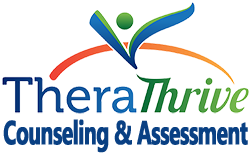
What is neurodivergence?
Neurodivergent
The Oxford Dictionary defines the term neurodivergent as “differing in mental or neurological function from what is considered typical or normal (frequently used with reference to [autism]); not neurotypical.” Neurological differences are natural variations in the human genome. When we use the term neurodivergent in advocacy and self-identification, it is a way of recognizing that not all people think or feel the same way, and that there is a wide spectrum of ways that people think.
The term “Neurodiverse” was first used in the 1990s by Judy Singer, an autistic sociologist. Judy Singer’s advocacy work revolved around removing stigma associated with autistic differences. When we use the word neurodivergent, we are claiming (reclaiming?) neurological differences as a great way to be versus something to prevent or cure.
Considering our neuroatypical differences as natural allows for better self-acceptance, and also acceptance at-large, with a goal to improve human understanding of differing needs and unique talents in our human population.
Neuroatypical
A neuroatypical person is a neurodivergent person, and these terms are often used interchangably. A neuroatypical person processes information and behaves in a way that differs from actual or perceived norms of a particular culture. This may manifest in mild ways that most people might not ever notice. Using the term neuroatypical is a way to discuss diagnoses, such as autism, in a way that does not frame it as a problem or an illness.
Here are some examples of diagnoses that we consider to fall in the neuroatypical category (we did not list them all):
- Autism
- ADHD
- Giftedness/twice exceptional (2e)
- OCD
- Learning disabilities/differences (such as dsyslexia, dyspraxia, dysgraphia, dyscalculia)
The above diagnoses are often comorbid with another diagnosis or more, including another neurodivergent diagnosis. Here are only a few example combinations (there are many possible permeataions considering the vastness of classifications in the DSM IV-TR):
- autism + ADHD (AuDHD)
- autism + specific learning disorder + anxiety disorders
- ADHD + mood disorders (such as depression)
- autism + ADHD + an eating disorder
- ADHD + a specific learning disorder + substance use/dependency
Neurotypical
When describing what is neuroatypical (neurodivergent), it can help to understand what we mean by neurotypical. When we consider neurotypical people, we are essentially thinking of individuals who have typical development and typical intellectual and cognitive functioning. Sometimes neurotypical people are described as Allistic, which means a non-autistic person.
You are not alone.
We Can Help
We value real realtionships, connection as well as appropriate transparency, and utilize an integrative approach. We have insight into the intensity and sensitivity often found in neurodivergent populations. We want to help you to gain self-understanding, acceptance, find your strengths and amazingness, while also learning skills of emotional regulation to feel better, get along better, and to reduce behaviors that do not work for you. We also believe in the need for connection, and will support you to develop positive and effective communication and social skills.
We have found it beneficial to establish clear goals and to personalize each treatment plan, such that your specific and unique needs and challenges will be addressed. We will also support you in co-occurring concerns, such as depression, anxiety, or an overall sense of feeling misunderstood.
We come from a place of warmth and understanding, and we will work along side you, to support and guide you as you navigate the social world, working to build up your social support and coming to realize your contribution and value in social connection.
Find A Therapist
Documents
